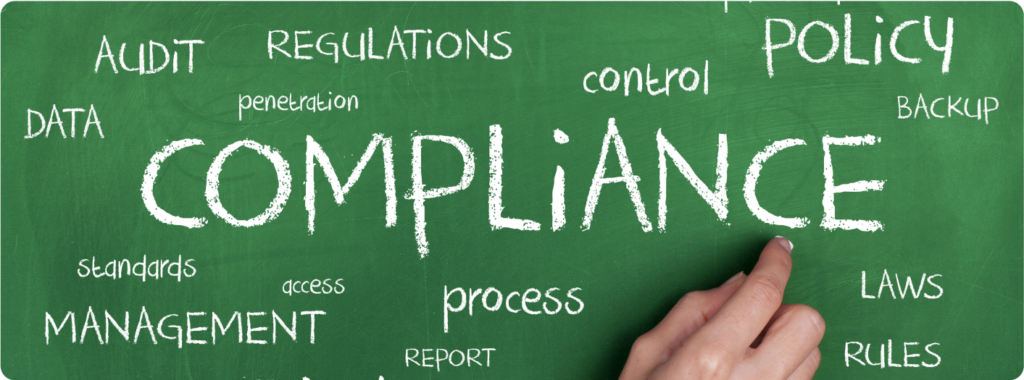For small business owners, managing expenses for sales teams can be daunting. Effective expense management is crucial for controlling costs and maintaining a healthy bottom line.
This article explores how user-friendly expense management software can streamline processes, increase productivity, and help small businesses save money. We’ll focus on practical solutions catering to small sales teams’ unique needs, highlighting how tools like Timesheets.com can simplify expense reporting and approval workflows.
Key Takeaways
- Implementing user-friendly software can save small businesses up to 60% of time spent on expense management, freeing up sales teams to focus on revenue-generating activities.
- Automating expense reporting can reduce errors by up to 90%, ensuring more accurate financial records and smoother reimbursement processes for sales teams on the go.
- Companies with clear, well-communicated expense policies typically see a 15-20% reduction in overall travel and entertainment costs within the first year of implementation.
- Even basic data analytics can uncover surprising insights: one small business found that switching to a new airline for frequent routes saved them over $10,000 annually in travel expenses.
- Timesheets.com users report an average of 25% faster expense approval times and a 40% decrease in non-compliant expense submissions after adopting the platform.
Index Table
- Understanding Expense Management for Small Business Sales Teams
- Essential Features of User-Friendly Expense Management Software
- Streamlining Expense Reports for Increased Productivity
- Practical Tips for Managing Travel Expenses in Small Sales Teams
- Ensuring Compliance with Company Spending Policies
- Leveraging Basic Data Insights for Cost Control
- Timesheets.com: A Straightforward Solution for Small Business Expense Management
- Conclusion: Empowering Small Businesses to Manage Expenses
Understanding Expense Management for Small Business Sales Teams
Definition and Importance
- Monitor and control spending
- Streamline reimbursement processes
- Maintain accurate financial records for tax purposes
- Improve budget allocation and financial planning
Common Challenges for Small Businesses
- Limited resources: Small businesses may lack dedicated finance teams to process the costs.
- Manual processes: Many small businesses still rely on time-consuming manual expense reporting methods.
- Policy enforcement: Ensuring compliance with expense policies can be difficult without proper systems.
- Cash flow management: Delayed expense submissions and approvals can impact cash flow and budgeting.

Using automated solutions like Timesheets.com, managers can reduce administrative work and improve overall team performance through efficient expense management.
Essential Features of User-Friendly Expense Management Software
Easy Expense Submission
- Mobile apps for on-the-go expense capture
- Receipt scanning capabilities to reduce manual data entry
- Intuitive interfaces for quick expense categorization
Basic Approval Workflows
- Customizable approval routes based on expense amount or category
- Automated notifications for pending approvals
- Clear visibility into the approval status for both employees and managers
Simple Expense Categorization
- Predefined expense categories tailored to everyday sales team expenses
- The ability to create custom categories for unique business needs
- Automatic categorization based on vendor or transaction data
Integration with Accounting Systems
Unlock Productivity
Begin Your Free Trial Now!

Streamlining Expense Reports for Increased Productivity

Reducing Manual Work
- Eliminate the need for paper receipts and spreadsheets
- Reduce data entry errors through automated import of credit card transactions
- Save time on expense report creation and submission
Speeding Up the Reimbursement Process
- Automated approval workflows reduce delays in expense processing
- Direct integration with payroll systems for quick reimbursement
- Real-time visibility into reimbursement status for employees


Improving Accuracy in Reporting
- Automated data capture reduces human error in expense entries
- Built-in policy checks help ensure compliance before submission
- Detailed reporting capabilities provide insights into spending patterns
Practical Tips for Managing Travel Expenses in Small Sales Teams
Setting Clear Policies for Travel Bookings
- Establish guidelines for booking air travel and accommodations
- Define preferred vendors and negotiated rates
- Set clear limits on per diem expenses for meals and incidentals
Handling Personal vs. Corporate Credit Card Usage
- Decide whether to issue corporate credit cards or allow personal credit cards for business expenses
- If using personal credit cards, establish a clear reimbursement policy
- Consider the benefits of corporate cards for easier expense tracking and potential rewards
Tracking Mileage and Other Travel-Related Expenses
- Implement a simple system for tracking mileage, such as a mobile app
- Define policies for reimbursable travel-related expenses (e.g., parking, tolls)
- Use receipt scanning technology to capture and store receipts digitally
By implementing these practices, small businesses can better manage travel costs, reduce the risk of expense fraud, and simplify the reimbursement process for employees. For businesses that handle on-site services, integrating field service expense management tools can further streamline expense tracking by automating field-based costs, improving overall efficiency, and ensuring accurate reimbursement.
Ensuring Compliance with Company Spending Policies

Creating Simple, Clear Expense Policies
- Develop straightforward guidelines that are easy to understand and follow
- Clearly define what constitutes an approved expense
- Establish spending limits for different expense categories
Educating Team Members on Policy Guidelines
- Provide regular training on expense policy and submission procedures
- Make the expense policy easily accessible to all employees
- Use real-world examples to illustrate proper expense management practices
Regular Policy Reviews and Updates
- Conduct periodic reviews of your expense policy to ensure it remains relevant
- Adjust policies based on changing business needs and market conditions
- Communicate any policy updates clearly to all team members

Effortless Time Management
Get Started with a Free Trial!
Leveraging Basic Data Insights for Cost Control
Identifying Common Spending Patterns
- Review expense reports regularly to spot trends in spending
- Look for opportunities to negotiate better rates with frequently used vendors
- Identify any unusual or excessive spending patterns that may require attention


Using Simple Reports for Budget Allocation
- Generate basic reports on expense categories to inform budget decisions
- Compare actual spending against budgeted amounts to identify areas of overspending
- Use historical data to make more accurate budget allocations for future periods
Making Informed Decisions to Reduce Costs
- Analyze the return on investment for different types of business expenses
- Identify areas for cost reduction without impacting sales performance
- Use data to support decisions on policy changes or spending limits

Timesheets.com: A Straightforward Solution for Small Business Expense Management
Timesheets.com offers a user-friendly expense management solution tailored to the needs of small businesses:
Key Features
- Simple expense submission process with mobile receipt capture
- Basic approval workflows to streamline expense processing
- Integration with popular accounting systems for seamless data transfer
- Customizable expense categories to match your business needs
Addressing Small Business Needs
Timesheets.com provides an affordable, easy-to-use platform that helps small businesses:
- Reduce manual work in expense reporting
- Improve accuracy in expense tracking
- Simplify the reimbursement process
Ease of Use and Implementation
Timesheets.com offers an intuitive interface and straightforward setup process. Small businesses can quickly implement it and benefit from improved expense management without facing a steep learning curve.
Conclusion: Empowering Small Businesses to Manage Expenses
Effective expense management is crucial for small businesses, particularly when managing sales teams. By implementing user-friendly expense management software like Timesheets.com, small businesses can streamline their expense reporting processes, improve compliance with spending policies, and gain valuable insights for cost control.
Key takeaways:
- Simplified expense submission and expense approval workflows save time and reduce errors
- Clear expense policies and education help control costs and ensure compliance
- Basic data analysis can inform budget decisions and identify cost-saving opportunities
- User-friendly solutions like Timesheets.com offer practical features to manage expenses efficiently

Remember, the goal is to create a system where every expense is approved, ensuring that your business maintains financial discipline without hindering the productivity of your sales team. With the right tools and processes, small businesses can effectively manage expenses, improving profitability and operational efficiency.
By implementing a robust system to manage expenses, businesses ensure that each transaction is an approved expense, aligning with company policies and budgets. This approach to expense management not only controls costs but also fosters a culture of financial responsibility within the organization. For additional details on mileage & expense management, businesses can explore solutions that simplify the reimbursement process while ensuring accuracy.







